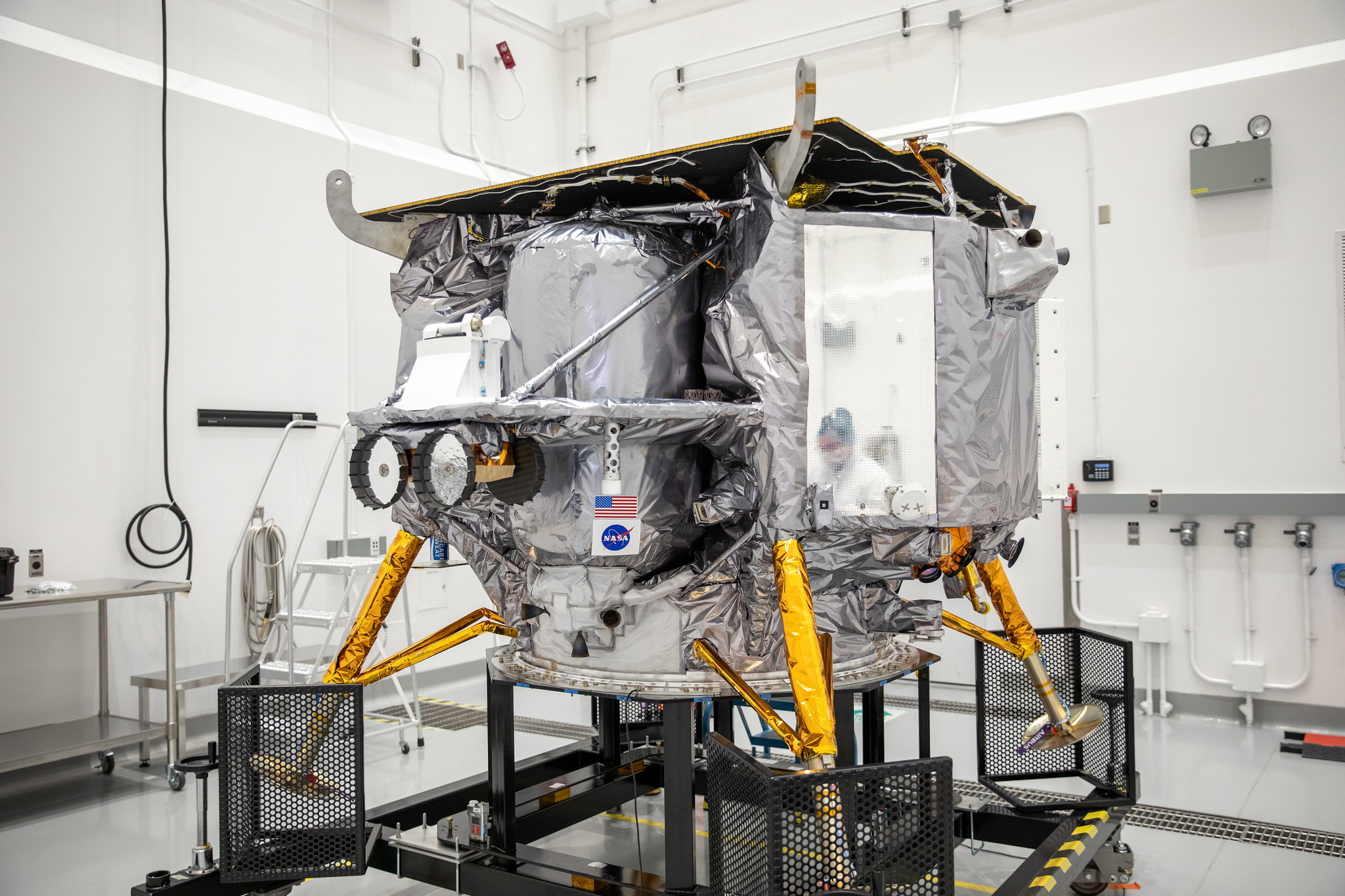|
Nov. 20, 2023 MEDIA ADVISORY: M23-141 NASA to Talk Science Highlights of First Artemis Robotic
Moon Landing
Teams with Astrobotic install the NASA meatball decal on Astrobotic’s Peregrine lunar lander on Tuesday, Nov. 14, 2023, at the Astrotech
Space Operations Facility near the agency’s Kennedy Space Center in Florida. NASA/Isaac Watson NASA will host a What’s on Board media teleconference at 2 p.m. EST Wednesday, Nov. 29, to discuss the
science payloads flying aboard the first commercial robotic flight to the lunar surface as part of the agency’s
CLPS (Commercial
Lunar Payload Services) initiative under the Artemis program. Carrying NASA and commercial payloads to the Moon,
Astrobotic Technologies will launch its Peregrine lander on ULA’s (United Launch Alliance) Vulcan rocket. Liftoff of the
ULA Vulcan rocket is targeted no earlier than Sunday, Dec. 24, from Launch Complex 41 at Cape Canaveral Space Force Station in Florida. The Peregrine lunar lander will
touch down on the Moon in early 2024. Audio of the call will stream on the agency’s website at: Briefing participants include:
To participate by telephone, media must RSVP no later than two hours before the briefing to:
ksc-newsroom@mail.nasa.gov. NASA awarded a task order for the delivery of scientific payloads to Astrobotic in May 2019.
Among the items on its lander, the Peregrine Mission One will carry
NASA payloads
investigating the lunar exosphere, thermal properties of the lunar regolith, hydrogen abundances in the soil at the landing site, and magnetic fields, as well as radiation environment monitoring.
Through Artemis, NASA is working with multiple CLPS vendors to establish a regular cadence of payload deliveries to the Moon to perform experiments, test technologies, and demonstrate
capabilities to help NASA explore the lunar surface. This pool of companies may bid on task orders to deliver NASA payloads to the Moon. Task orders include payload integration and operations, launching from Earth, and landing on the surface of the Moon. The
indefinite delivery, indefinite quantity CLPS contracts have a cumulative maximum value of $2.6 billion through 2028. With CLPS, as well as with human exploration near the lunar South Pole, NASA will establish a long-term cadence of Moon missions in preparation for sending the first astronauts
to Mars. For more Artemis updates, follow along at: https://blogs.nasa.gov/artemis/ -end- TO RECEIVE NASA NEWS RELEASES NASA news releases and other information are available automatically by sending an e-mail to hqnews-join@newsletters.nasa.gov (no
subject or text in the body is required). To unsubscribe from the list, send an e-mail message to hqnews-leave@newsletters.nasa.gov (no subject or
text in the body is required). |

